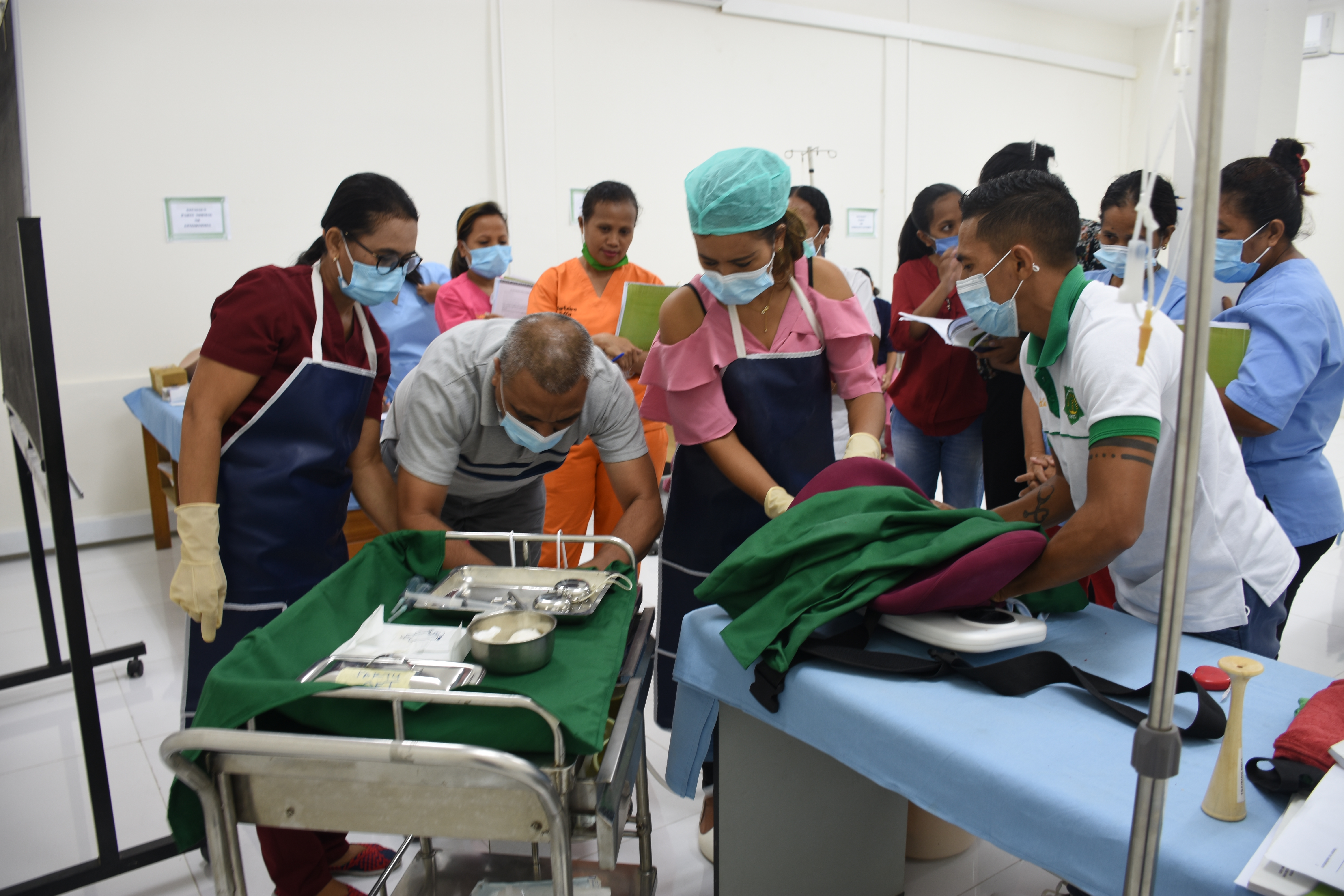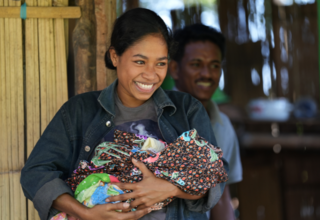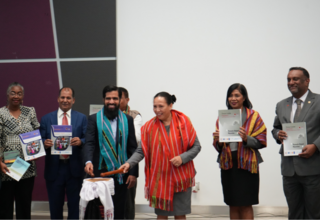You are here
UNFPA in Timor-Leste
 BEmONC training at the National Hospital in Dili. © UNFPA Timor-Leste.
BEmONC training at the National Hospital in Dili. © UNFPA Timor-Leste.
UNFPA, the United Nations sexual and reproductive health and rights agency, expands the possibilities for women and young people to lead healthy and productive lives. It is the lead UN agency for delivering a world where every pregnancy is wanted, every childbirth is safe and every young person's potential is fulfilled.
Since 2003, UNFPA Timor-Leste has supported the Government of Timor-Leste to conduct Census and has strongly promoted sexual and reproductive health and rights and gender equality as key elements to achieve human rights and human dignity. Over the past decade UNFPA assistance has contributed towards establishing basic social services and generating baseline socio-demographic data for Timor-Leste.
The main focus of the programme is to support national efforts to achieve universal access to sexual and reproductive health and reproductive rights, in line with the UNFPA transformative results to end maternal deaths, unmet need for family planning, and gender-based violence and harmful practices -- responding to the principle of leaving no one behind, focusing on women, adolescents and youth, particularly those living in rural areas, people with disabilities and key population groups.
Sexual and Reproductive Health and Rights for all
25% of married men in Timor-Leste have unmet need for family planning, while the use of modern family planning methods is only 26%
There are significant barriers to accessing family planning services in Timor-Leste, whether due to lack of knowledge, transportation, well-equipped health facilities, qualified health personnel or legal constraints.
The situation is particularly difficult for adolescents and youth people who are not covered by National Family Planning Policy, even though there is a relatively high rate (7%) of teenage pregnancy, unsafe abortion and child abandonment.
Timor-Leste has one of the highest maternal mortality rates in Southeast Asia (195 per 100,000 live births) and only 57% of births are attended by a qualified health professional.
The lack of an effective and accessible emergency obstetric and newborn care network and of qualified health professionals may help explain these numbers.
HIV prevalence in Timor-Leste increased tenfold among pregnant women and STI clinic attendees between 2013 and 2018. Recent data suggest that the epidemic is no longer concentrated in key population groups, but also in the general population.
To respond to these challenges, UNFPA:
- Builds the capacity of human resources in the area of sexual and reproductive health (SRH)
- Procures and manages reproductive health commodities
- Advocates with policy makers towards the integration of SRH and GBV services in health facilities
- Strengthens the Emergency Obstetric and Newborn Care (EmONC) network by equipping health centers to provide EmONC services
- Works alongside key populations, uniformed personnel and community members to provide a comprehensive HIV prevention package that includes access to condoms and lubricants, testing for HIV and other STIs and treatment referrals.



